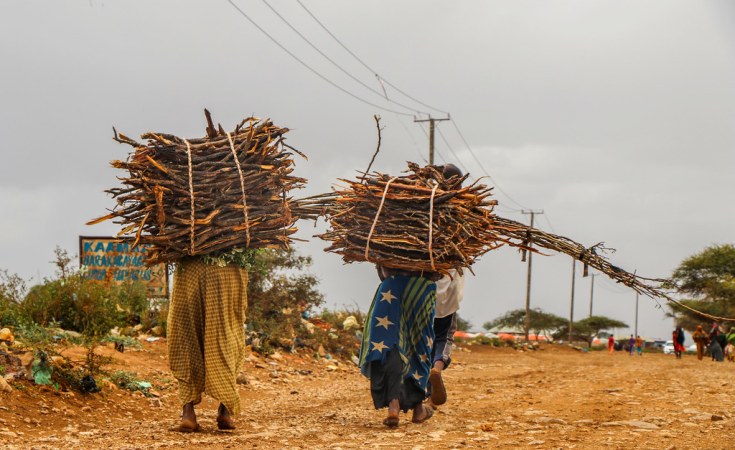Somalia is at a "tipping point", with hundreds of thousands of people at immediate risk of famine, the heads of the UN's highest-level humanitarian coordination forum have warned.
In a statement issued on Monday, the principals of the Inter-Agency Standing Committee (IASC) called for increased support and humanitarian access to save lives.
📢🚨Window of opportunity to prevent #famine in #Somalia is closingIt is unacceptable that people are dying of #hunger. We must take action now. We urge all actors to facilitate immediate & safe access for humanitarian operations.#IASC Statement👉https://t.co/nQD12l0wba pic.twitter.com/HfldiHnhuX-- Inter-Agency Standing Committee (IASC) (@iascch) September 5, 2022
Famine is already unfolding in Baidoa and Burhakaba districts in south-central Somalia, and they said the situation will likely last until March if aid is not significantly and immediately scaled up.
'Unacceptable' hunger crisis
Meanwhile, millions more Somalis face extreme levels of acute hunger. Women, particularly pregnant and lactating women, as well as children under five, are among the most vulnerable, and require urgent assistance now to avoid a worst-case scenario.
"Starvation and death are likely already occurring. During the 2011 famine, about 50 per cent of the more than 250,000 people who died, did so before the official declaration. At least half were children," they said.
The IASC brings together the heads of 18 organizations, namely key UN agencies and their partners, to better prepare for and respond to humanitarian crises.
The warning comes as some 20.5 million people across the Horn of Africa are in the grip of what its chiefs called "a dire and entirely avoidable hunger crisis", adding "this is unacceptable".
They said famine declarations should not be the only trigger for meaningful action.
However, even though local authorities, governments, UN agencies and non-governmental organizations (NGOs) have been issuing alerts about catastrophic hunger for more than a year, they said these alerts have largely been overlooked.
'Explosion in needs'
Furthermore, despite global commitments to anticipating crises, funding has not reached the scale needed.
Although a rapid scale-up of humanitarian assistance since early in the year has undoubtedly saved many lives, the "explosion in needs" is quickly outpacing resources.
"Together, we have averted famine before. We can and must do so again," they said.
"In a world of staggering wealth, it is unacceptable that people are dying of hunger. We must take action now".
Facilitate access, provide funding
The statement called for all sides to facilitate immediate and safe access for humanitarian operations.
The partners also appealed for donors to provide immediate, flexible funding so that humanitarian agencies on the ground, particularly local and international NGOs, can rapidly scale up and prevent more deaths, protect livelihoods, and avert a deepening catastrophe.
Getting aid to rural communities before they are forced to abandon their homes in search of food is critical, they added.
'A final warning'
UN Humanitarian Affairs Coordinator Martin Griffiths, the IASC chair, wrapped up a five-day visit to Somalia on Monday, his first to the country.
"I have been shocked to my core these past few days by the level of pain and suffering we see so many Somalis enduring," he told journalists in the capital, Mogadishu.
"Famine is at the door," he said, "and today we are receiving a final warning."


